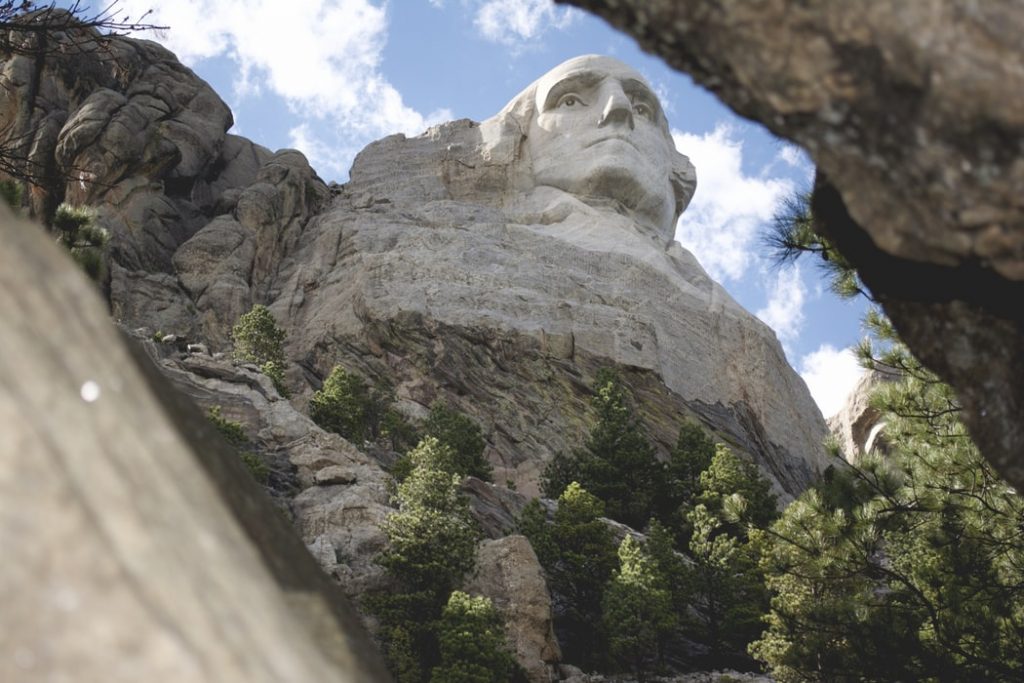Heroism
Character and Greatness
We live in a time when character is in decline and greatness remains rare or wrongly defined.
Many of the “great” people of our time are famous simply because of their entertainment wealth or following. They live sad, debauched and immoral lives but are put on pedestals by those who adore them.
Not so George Washington and Abraham Lincoln. Their lives truly helped change the world for good.
Some thoughts on character and greatness.
Memorial Day Redux: The Bravest Boehme
The Bravest Boehme
Shirley and I are our two mothers just returned from a trip to the local cemetery. We do it every Memorial Day to thank God both for those who’ve gone before us, and especially for those who laid their lives down for our country.
Most of our relatives’ remains are interred at Sunset Lane in Port Orchard. The cemetery contains a beautiful view of Sinclair Inlet and each Memorial Day is festooned with large flags scattered throughout the property and small flags placed at the headstone of all those who’ve served in war.
Today, thousands of flowers graced the resting place of our forefathers–many containing vases of rhododendrons–Washington’s state flower. We brought the same from my mother’s yard to place at the graves of our loved ones.
I cherish Memorial Day because I’m deeply thankful for those who both gave me life and who laid their lives down that we might live free.
May we always be grateful for life and liberty.
It’s becoming a tradition I re-print the story of my uncle–Richard Boehme–the only member of the Herman & Lucille Boehme family I never met. As it says on my mom and dad’s tombstone “We’ll Meet in Heaven.”
I shared his story the past two Memorial Days. It’s worth re-printing this year.
Richard gave his life for his country in World War II. He is the bravest Boehme.
This is his heroic story.
My father was the oldest of six children, born and raised in Akron, Ohio. The second child born to Herman and Lucille Boehme was Richard. I am told that he was smart, athletic, and religious (in their traditional Lutheran home). While in his early twenties, “Uncle Dick” joined the US military and headed out to fight the Germans in the western theatre of World War II.
One day in the spring of 1945, a somber member of the US Army knocked on my grandparents’ door and informed them that Dick was missing in action in Europe. For over a year, my grandmother dried her tears with the hope that Dick would be found and come home. Then came the heart-breaking news. He had been shot down and killed on February 16, 1945–just seven months before the war ended.
For decades, our family was given little information on Dick’s death. Then, in the early 2000s, a man named Jerry Whiting tracked down my father to let him know that he was writing a book in memory of his own dad and all those that served in his squadron–including my uncle. (The book is called “I’m Off to War, Mother But I’ll Be Back.”)
Jerry Whiting would answer many questions about Dick’s last months on earth.
Whiting spent decades combing through military files and collecting information. He traveled to Europe to interview folks who had met his dad and “band of brothers” and knew something about their story. They included soldiers, villagers, and even a Catholic priest.
When the book arrived, our family was ecstatic. Finally we would learn what had happened to “Uncle Dick”– a brave member of the 485 Bomb Squadron stationed in Italy. The biggest revelation? He had been shot down three times in the space of five months.
It takes great bravery to keep going under those circumstances. Here’s what happened.
October 16, 1944
Dick was captain of a B-28 Liberator that bombed some German military factories in Austria. After failing to fire on the first target due to clouds, the squadron went on to their second priority, the Neudorf Aircraft Factory at Graz. Upon finishing the assignment, they were running low on fuel and would not make it back to Italy. They’d also been hit by incoming “flak” from German guns.
Uncle Dick put out the Mayday signal and all of them parachuted out of the plane as it crashed into the waters off Yugoslavia. One of Uncle Dick’s mates hit the water, swam to shore and was found by a village girl named Narija Glavan who gave him clothes to wear and hid him in a hole in the ground from the occupying Germans.
Uncle Dick landed in the water a few miles from his buddies. The Germans saw his parachute descending and fired at him in the air–but missed. He started swimming but was caught up in the parachute. Two local Yugoslav cousins, Niko and Nikica Peros, jumped into action from shore. Here’s how Whiting tells the story:
“The Peros cousins saw Boehme struggling in the water…They swam out to Boehme and Nikica cut Boehme free from the parachute lines and both helped him to shore. As they swam, the Germans started shooting at them with machine guns. The Germans were less than a mile away, so the three men got out of the immediate area as quickly as possible.”
“They took Boehme to the village of Zaton. The villagers gave him civilian clothes and hid him from the Germans who were searching the entire area for missing flyers…The villagers refused to betray Boehme, so the Germans shelled the village, ultimately killing a young girl in the barrage.”
Helped on by the locals, Uncle Dick walked, hid, and traveled north for a week staying near the coastline. He was finally smuggled onto some islands and evacuated to Vis. From there he returned to Italy where he was awarded a Silver Star.
November 17, 1944
Three weeks later, Uncle Dick volunteered for another combat mission. His plane was again shot down while returning from Blechhammer, Yugoslavia. Details are scarce are this mission, but he eventually found himself in a battle between Chetniks and Partisans. On the run for a month, he finally made a safe return to Italy one month after his second crash.
The Final Mission: February 16, 1945
Uncle Dick was once again captaining the squadron when, after bombing their target, they came under heavy anti-aircraft fire near the Italian/Austrian border. Whiting describes the scene as two aircraft were fatally hit:
“Both planes broke apart after the mid-air collision. The tail was sliced off Tomhave’s plane (piloted by Uncle Dick) and part of the nose broke off. Major Olen Cooper Bryant (the navigator) was thrown through a hole in the nose of the plane, unconscious from the concussion of the direct hit. He fell from an altitude of about 10,000 feet without a parachute, landing in heavy snow.”
Miraculously, Bryant survived! Others parachuted from the two doomed planes–but not my uncle. The planes crashed near each other below the crest of Mount Belepeit, near the Slovenian border in northern Italy–west of the village of Chiusaforte. Those who lost their lives were John Carmody (navigator), James Cahen III (navigator), Marvin Woodcock (bombadier), James Dixon (flight engineer), Bruce Graves (radio operator), and Captain Richard Boehme (pilot).
Uncle Dick was 23 years old.
On February 27, 1945, after ten days of severe weather, Father Giovanni B. Lenarduzzi led twenty-five local villagers up the mountain to locate the remains of the American airmen and give them a proper burial–near the summit of Mount Belepeit. We, their relatives, are deeply grateful.
In the past forty years, some villagers have made an annual trip up the mountain to honor the American flyers were fought for their freedom. My dad’s letters contain e-mails from those folks–one as recent as 2005–which shows the tree-lined hillside of the mountain (in summertime) and numerous remains of the crash that are buried beneath the leaves and vegetation.
My uncle was a hero. He loved his God, family, and nation and gave his life that we might enjoy ours.
I think now of what Uncle Dick might have done if he lived past 23. Would he have become a doctor, pharmacist, office manager, or logger like his older brothers? Would he have moved to the west coast with the rest of his family? Had children, grandchildren? Lived into his nineties like his older brother, my dad?
How would he have continued to serve the God of his fathers? He never had that chance. He laid down his life for others–just like his Lord did for the sins of the world.
Let’s never forget the heroes. Let’s emulate their faith and commitment. In my latter years, I want to be brave like my Uncle Dick.
I’ll always consider him the bravest Boehme.
Memorial Day 2017 – The Bravest Boehme
Our church held a fabulous Memorial Day service on Sunday complete with a color guard, patriotic songs, prayer and great preaching to honor those who have served and given their lives for our country.
Freedom isn’t free–and those who fight for our liberty should always be remembered.
I had the privilege of telling my Uncle Dick’s story to the congregation on Sunday. I consider him the “bravest Boehme” who gave his life to liberate Europe during World War II.
I shared the story for the first time last year. It’s worth re-printing here.
May we all, this Memorial Day, honor those who served. Read More



